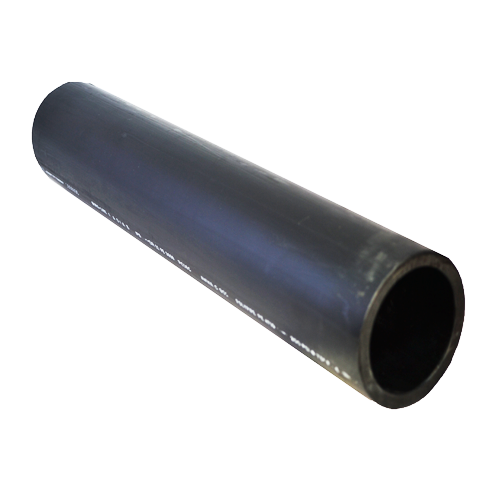Critical Benefits of custom hdpe pipe manufacturing Midland TX for Engineering Projects
Wiki Article
Recognizing the Secret Benefits of HDPE Pipe for Water and Wastewater Monitoring
Using HDPE pipeline in water and wastewater monitoring presents countless benefits that warrant factor to consider. Its phenomenal longevity and long life-span make it a preferred selection for lots of tasks. Furthermore, the material's resistance to deterioration and chemical damages enhances its reliability in different settings. Nevertheless, the advantages extend beyond simply long life and resistance. Exploring its cost-effectiveness and ecological effect discloses a lot more compelling factors for its extensive fostering in modern-day frameworkExtraordinary Toughness and Long Life

HDPE pipeline sticks out for its outstanding sturdiness and longevity, making it a recommended selection in water management systems. Created from high-density polyethylene, these pipelines can hold up against considerable pressure and stress, making sure reliable efficiency in time. Their durable nature permits them to withstand extreme ecological problems, including temperature level changes and dirt activities, which can cause other materials to stop working.
The life expectancy of HDPE pipelines often exceeds half a century, supplying an economical solution for districts and markets alike. In addition, the product's lightweight properties streamline installation, reducing labor expenses and durations. This sturdiness minimizes the demand for frequent repair services or replacements, even more improving its financial allure.
In water administration applications, the dependability of HDPE pipes means fewer disturbances and improved solution connection, making them indispensable to sustainable facilities advancement. The mix of toughness and durability strengthens HDPE's duty as a cornerstone in efficient water monitoring options.

Resistance to Corrosion and Chemical Damage
While numerous materials catch deterioration and chemical damage over time, HDPE pipes exhibit impressive resistance, making them suitable for various water monitoring applications. This resilience comes from the molecular structure of high-density polyethylene, which is inherently non-reactive and does not corrode like metals or degrade from direct exposure to severe chemicals. As a result, HDPE is highly efficient in settings with aggressive materials, such as wastewater systems that might include acids, bases, and organic solvents.
Furthermore, HDPE pipelines can stand up to environmental variables such as soil acidity and saline problems, further boosting their viability for diverse applications (Texas hdpe pipe manufacturer). Their ability to keep structural honesty gradually lowers the danger of leaks and failings, which is important in making certain the safety and integrity of water circulation and wastewater monitoring systems. Subsequently, the resistance to deterioration and chemical damage significantly adds to the general effectiveness and long life of HDPE piping solutions
Cost-Effectiveness and Economic Advantages
When thinking about the financial effects of water management systems, the cost-effectiveness of HDPE pipes comes to be apparent. These pipelines use lower installation and upkeep prices compared to standard products like steel or concrete. Their lightweight nature simplifies transportation and installment, leading to minimized labor expenditures. Furthermore, HDPE pipelines exhibit a lengthy lifespan, often surpassing 50 years, which translates to fewer replacements and long-term savings.Furthermore, the resistance of HDPE to corrosion and chemical damages lessens the requirement for pricey repairs and replacements. The pipes likewise support efficient water flow, lowering energy expenses connected with pumping systems. By reducing leaks and water loss, HDPE pipelines add to considerable financial benefits for communities and sectors alike. Generally, the initial investment in HDPE piping can produce significant financial returns over the life-span of the water management system, making it a prudent choice for lasting infrastructure growth.
Environmental Sustainability and Reduced Effect

Convenience and Adaptability in Installation
As a result of their one-of-a-kind properties, HDPE pipelines supply remarkable adaptability and flexibility in installation, making them appropriate for a large range of applications. Their light-weight nature enables easier handling and transportation, minimizing labor prices and installation time. HDPE pipes can be bent and shaped to fit numerous terrains and project requirements, which is particularly useful in testing settings.Furthermore, their resistance to corrosion and chemical damage permits for setup in diverse settings without the requirement for specialized safety finishes. The ability to fuse joints develops a continuous, leak-free system, enhancing the overall honesty and integrity of the setup. HDPE's versatility also suits ground motion, decreasing the danger of damage in areas susceptible to shifting soil. Generally, these qualities make HDPE pipelines not only versatile however additionally a recommended choice for water and wastewater management systems.
Often Asked Concerns
Exactly How Does HDPE Pipe Contrast to PVC in Water Management Applications?
HDPE pipe provides exceptional adaptability, resistance to corrosion, and durability contrasted to PVC. Its lighter weight promotes much easier installation, while its lengthy life-span lowers replacement expenses, making HDPE a recommended option in water monitoring applications.What Is the Life-span of HDPE Pipeline Under Regular Conditions?
Under common conditions, HDPE pipelines can have a lifespan varying from 50 to 100 years. Their toughness and resistance to deterioration add to their long-lasting performance in various applications, making them a trustworthy selection for infrastructure.Are HDPE Water Lines Recyclable After Their Life Span?
Yes, HDPE pipes are recyclable after their service life. hdpe pipe in stock Midland TX. They can be refined and repurposed into new items, greatly reducing environmental effect and advertising sustainability within the sector, making them an eco-friendly selection for piping solutionsWhat Is the Setup Process for HDPE Pipes?
The setup procedure for HDPE pipes involves website prep work, trenching, pipeline fusion or mechanical joining, backfilling, and pressure screening. Proper techniques guarantee a long lasting and efficient system for delivering water and wastewater effectively.Can HDPE Pipeline Be Used for Both Drinkable and Non-Potable Water Solutions?
Yes, HDPE pipes can be utilized for both safe and clean and non-potable water systems. Their convenience, sturdiness, and resistance to corrosion make them suitable for different applications, making sure secure and reliable transport of water in various contexts.Report this wiki page